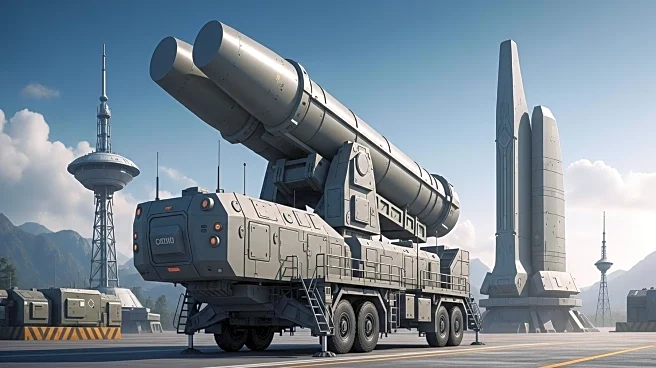What's Happening?
Taiwanese President Lai Ching-te has reiterated Taiwan's commitment to self-defense in the face of increasing military pressure from China. During a week of defense events, Lai emphasized that Taiwan will not surrender in the event of an invasion, countering any claims of defeat as false. The statement was made at a forum focused on Taiwan's preparedness for natural disasters or war, where Lai highlighted the government's new civil defense handbook. This handbook provides crucial information on safety measures during a potential Chinese attack. Taiwan, which China views as its territory, has been actively enhancing its defense capabilities, including hosting its largest-ever arms show to attract international defense companies for collaboration.
Why It's Important?
The reaffirmation of Taiwan's self-defense stance is significant amid escalating tensions with China, which has not ruled out the use of force to assert control over the island. Taiwan's efforts to bolster its defense capabilities, including international collaborations, reflect its strategic approach to maintaining sovereignty and security. This development impacts regional stability and international relations, as Taiwan seeks support from global allies. The situation poses challenges for U.S. foreign policy, given its historical support for Taiwan and the potential implications for military and economic partnerships in the Asia-Pacific region.
What's Next?
Taiwan's defense strategy will likely continue to evolve, with further investments in military capabilities and international partnerships. The ongoing arms show and collaborations with global defense companies suggest a focus on strengthening Taiwan's defense industry. The international community, including the U.S., may respond with diplomatic support or increased military cooperation. China's reaction to Taiwan's defense initiatives could influence future geopolitical dynamics in the region, potentially affecting trade and security alliances.
Beyond the Headlines
The situation in Taiwan highlights broader issues of national sovereignty and self-determination, as the island navigates its relationship with China. The defense handbook's emphasis on civilian preparedness underscores the importance of public awareness and resilience in national security strategies. Taiwan's proactive approach may inspire similar measures in other regions facing territorial disputes, contributing to global discussions on defense and diplomacy.








